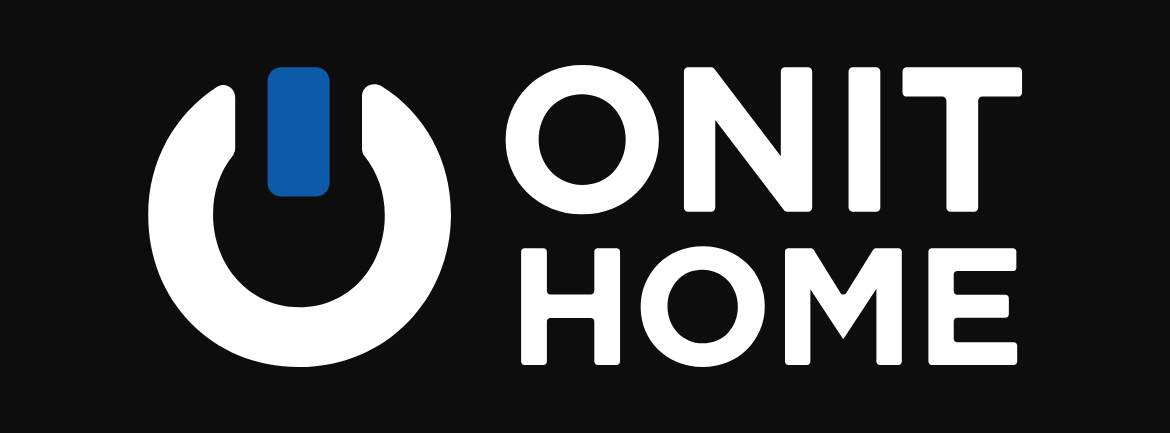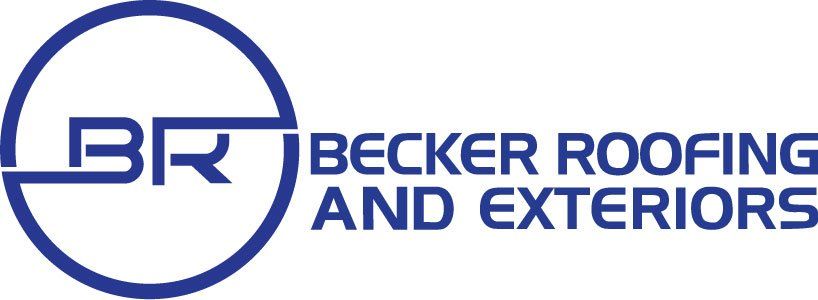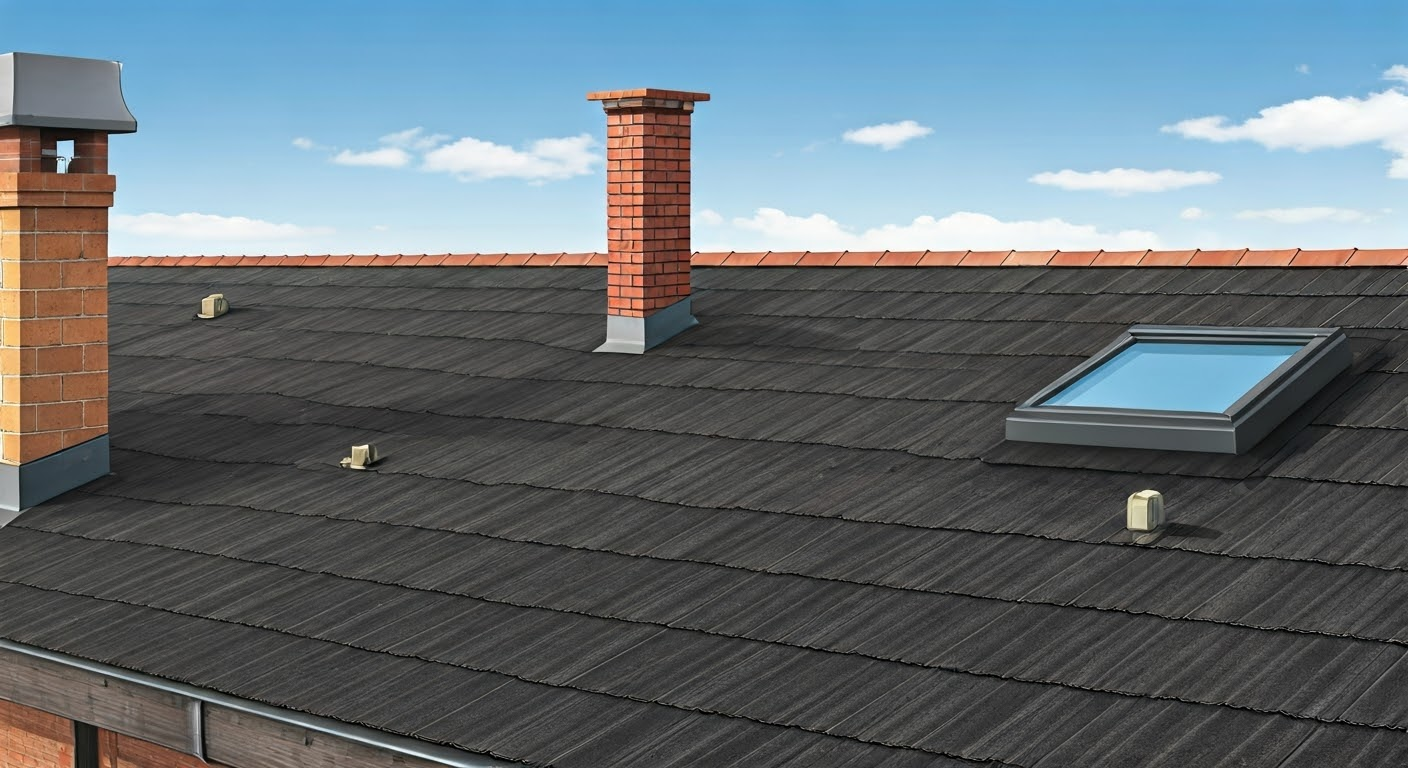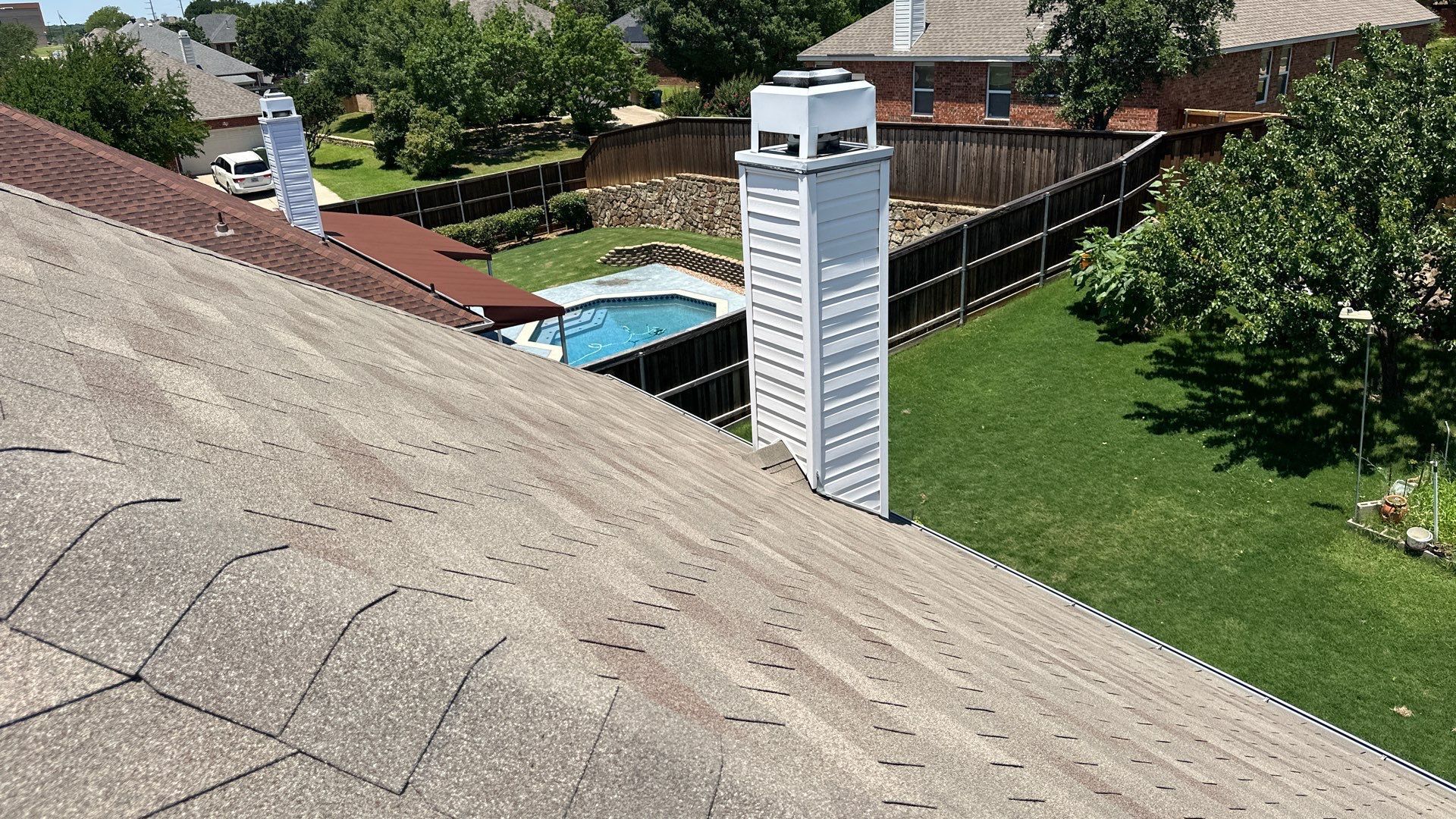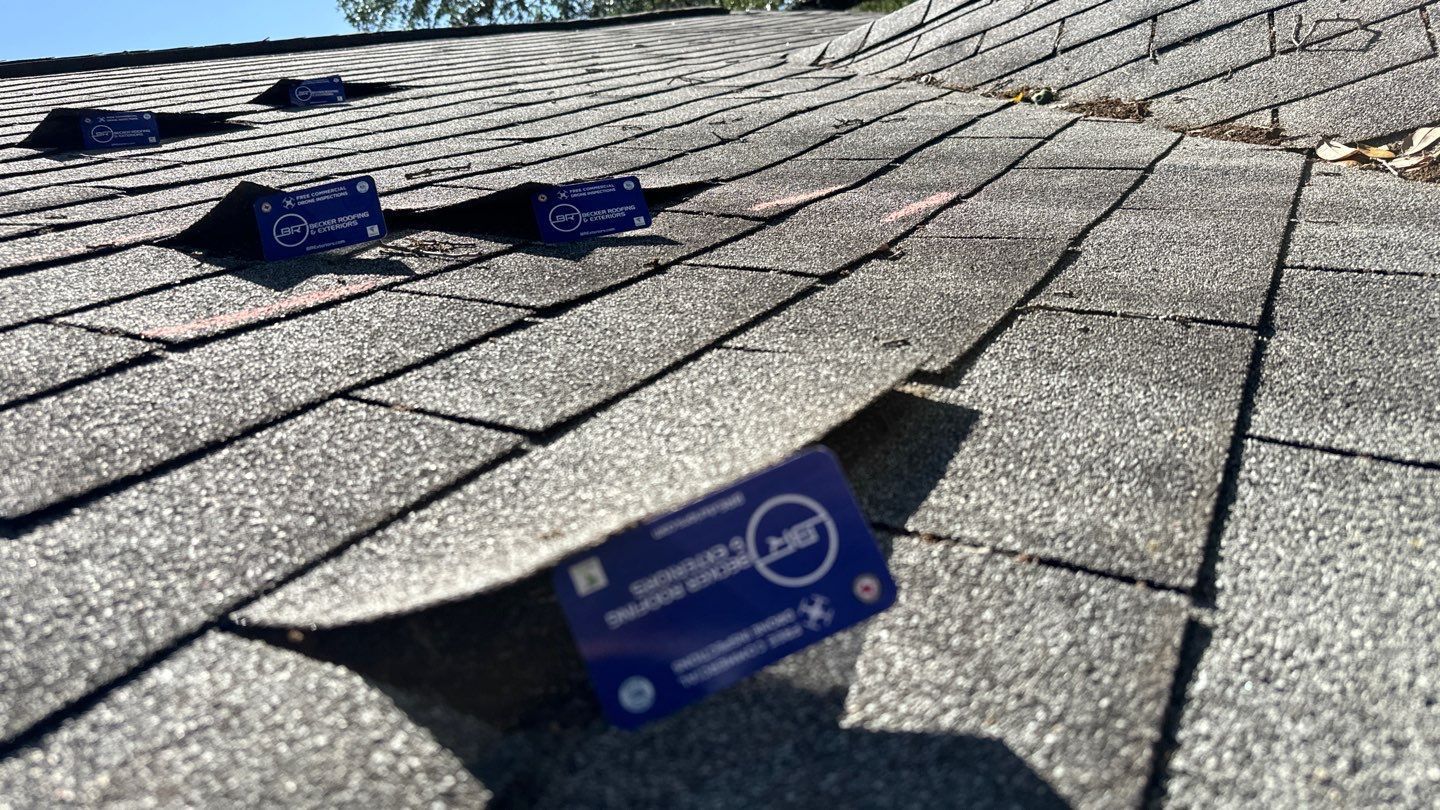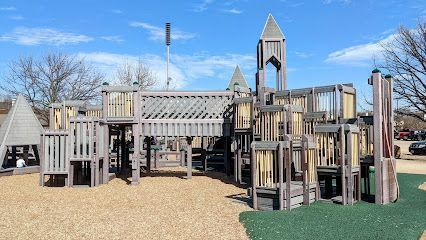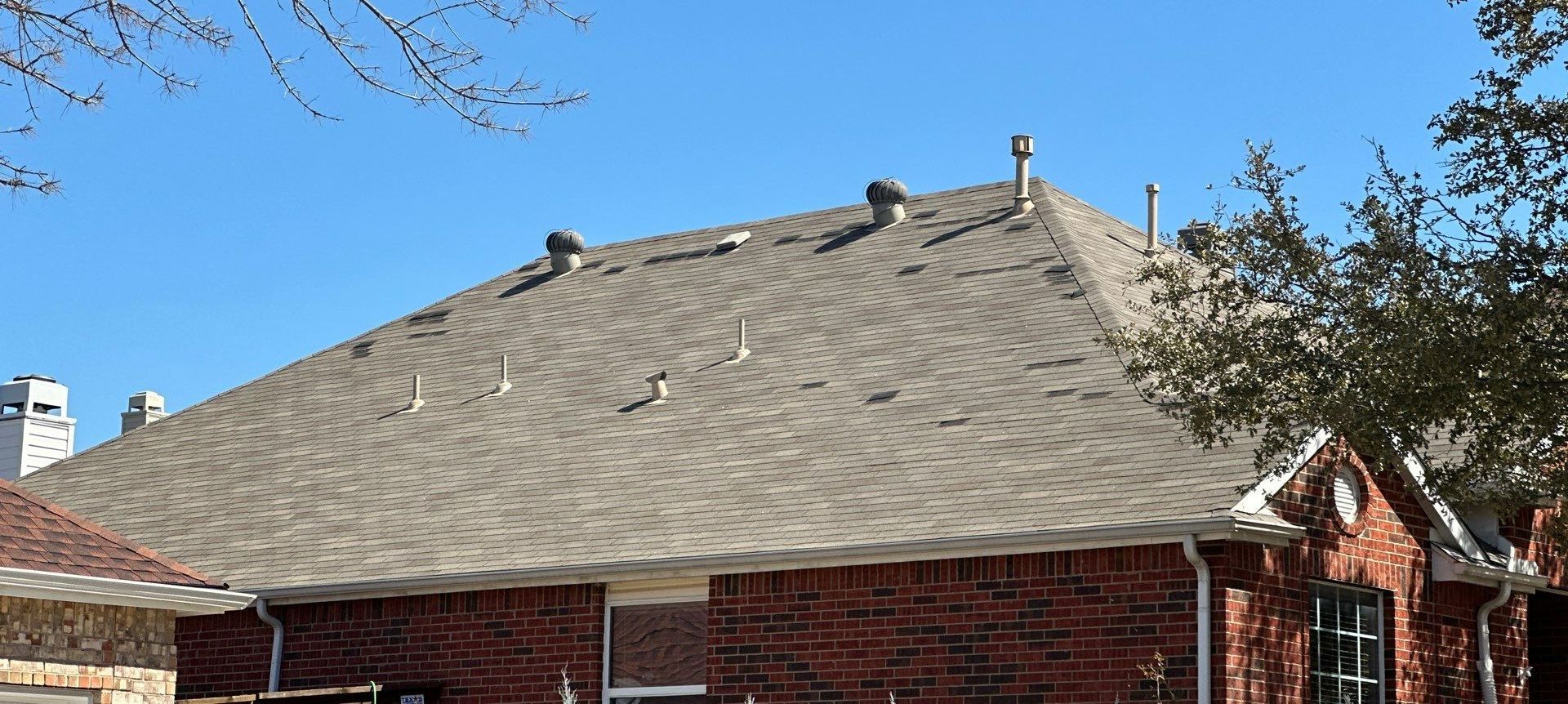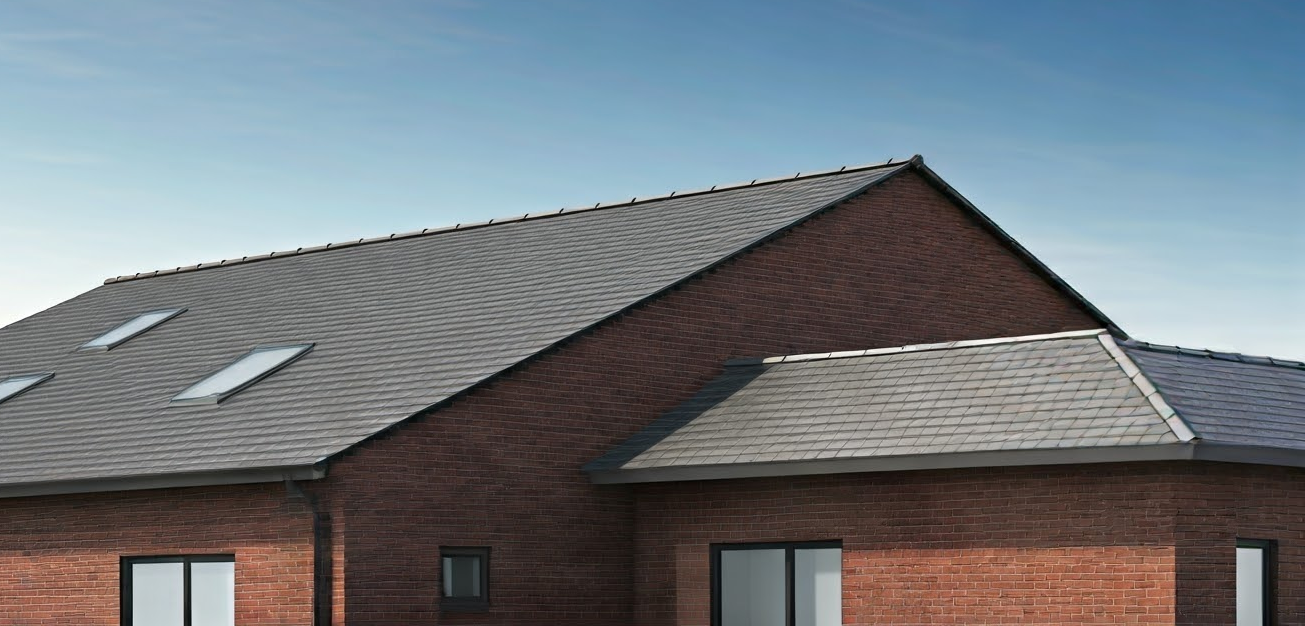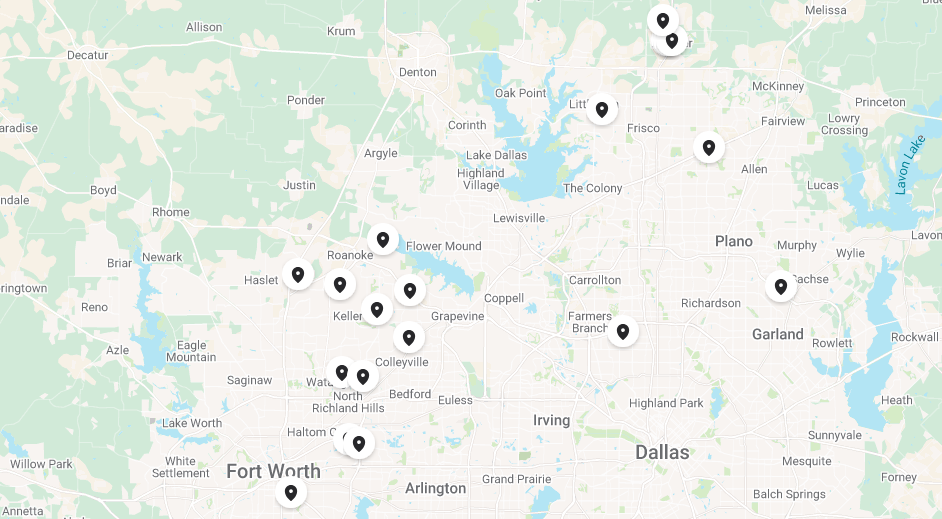Pros and Cons of Spray Foam Attic Insulation Fort Worth
Becker Roofing: Spray Foam Attic Insulation Pros and Cons
Get insights on this effective insulation solution in the DFW area.
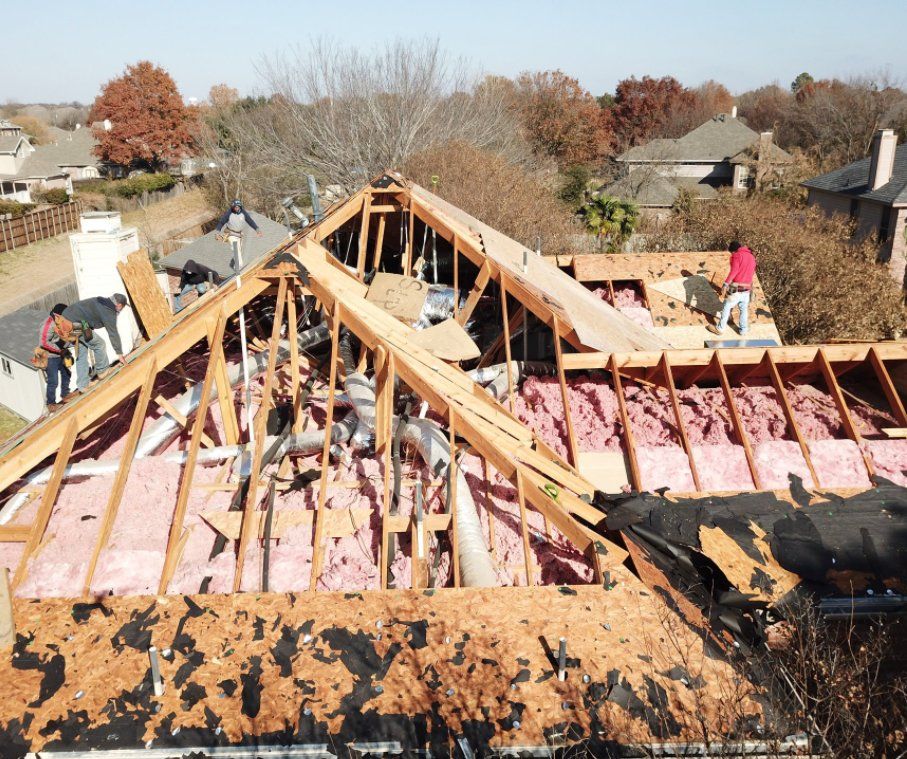
Spray Foam Attic Insulation Fort Worth: Pros and Cons
Key Highlights
- In Fort Worth, a lot of homeowners go for spray foam insulation because it's good at saving energy and lasts a long time.
- With its help in keeping houses cooler in hot climates, folks find their energy bills going down and comfort levels going up.
- On the downside, putting this type of foam insulation in your home might cost you more at first than other kinds of insulation would.
- If someone doesn't do the job right, there's a chance that the spray foam could expand too much and cause some damage.
- Some people are also worried about how safe it is to breathe around this kind of material due to concerns about toxicity affecting indoor air quality.
Introduction
In Fort Worth, spray foam insulation is becoming a favorite among homeowners for its many perks. It's sprayed on as a liquid and then expands into foam, sealing up spaces tightly. This way of insulating stands out from older methods because it offers several benefits that make people want to choose it.
Through this blog post, we're going to look at the good and bad sides of using spray foam insulation in Fort Worth homes. We'll highlight what makes this method special, how it works well in attics, and the advantages you can expect from it. On top of that, we'll talk about some downsides like how much you have to pay upfront and issues with moisture and mold.
We won't forget to explain some technical stuff too - like what R-value means for spray foam insulation or how well it keeps heat inside your house. By the time you finish reading this blog post, you’ll know all there is about spray foam insulation so you can decide if it’s right for your place in Fort Worth.
Understanding Spray Foam Insulation
Spray foam insulation is a kind of insulation that starts off as a liquid and then puffs up into foam to seal everything tightly. It's really good for attic insulation because it stops radiant heat from getting through. This isn't like the usual stuff you see, such as fiberglass or cellulose, because spray foam creates a tight barrier that fills in all the little spaces and cracks to keep your home's temperature just right. Since it sticks well to various surfaces, it's perfect for keeping attics cozy by blocking out unwanted heat or cold from creeping in.
What Is Spray Foam Insulation?
Spray foam insulation, often just called spray foam or foam insulation, is a special kind of material that gets sprayed on as a liquid and then puffs up into a foam to make an area completely sealed off from air. It's really popular for use in attics because it keeps the heat out (or in) by providing great thermal protection and stopping radiant heat from passing through.
This type of insulation comes together when two ingredients - polyol resin and isocyanate - are mixed. As soon as they combine, they puff up to fill any cracks or holes, making sure there are no gaps left. This means it can stick to uneven surfaces pretty well and makes sure no outside air sneaks in, which helps keep your energy bills down.
One big plus with using spray foam is how it does two jobs at once: insulating your space while also sealing any leaks with just one application. This not only stops drafts but also cuts down on wasted energy, making your house more comfortable while saving you money since its R-value (a way to measure how good something is at insulating) is so high.
How Is It Applied in Attics?
Spray foam insulation is a popular choice for keeping attics cozy by stopping radiant heat from coming in or going out. Before anything else, the attic needs to be tidy and clear of any mess or dust.
With that done, spray foam gets put on either under the roof's top layer or on the attic floor, depending where it's needed most. It's crucial this foam covers everything evenly - including those big beams in your roof called rafters - so there aren't any tiny cracks or spaces left open.
After being sprayed, this insulation grows bigger and sets solid, making sure no air sneaks through. This tight seal keeps your attic from losing warm or cool air you're trying to keep inside. So basically, with this kind of protection up there, your house stays more comfortable without having to crank up the heating when it’s cold outside.
Benefits of Spray Foam Insulation in Fort Worth
Spray foam insulation is a great choice for folks living in Fort Worth, especially because of how well it keeps energy use down. By creating an airtight barrier, this type of insulation stops air from sneaking out and cuts back on the need to crank up the heat or AC. This means you can save some money on your heating and cooling bills.
In places with hot weather, spray foam really shines by keeping indoor spaces cool and comfy without having to rely too much on air conditioning. On top of that, spray foam works like a shield against radiant heat from the sun, bouncing it back instead of letting it warm up your home. This feature adds another layer to its ability to help you save energy.
Energy Efficiency and Cost Savings
Spray foam insulation is really good at keeping your house warm or cool, so you don't have to spend a lot of money on your energy bills. The Department of Energy says that using spray foam can help cut down how much energy you use by 20% or even more when compared to the usual ways we keep our homes insulated.
Here's why spray foam insulation is great for saving energy and money:
- It seals up any gaps tightly, stopping air from sneaking in or out. This means your home stays at a nice temperature without having to crank up the heating or cooling too much.
- With this tight seal, there's less strain on HVAC systems (the stuff that heats and cools your place), which means they use less power and save you some cash.
- Spray foam has something called a high R-value. That just means it’s really good at stopping heat from passing through it, helping keep your house cooler during those hot months.
Improved Home Comfort and Air Quality
Besides saving money and being good for energy use, spray foam insulation makes your home more comfy and the air better to breathe. With spray foam, you won't feel drafts or have air sneaking in because it seals up those gaps really well. This means your house stays at a nice even temperature everywhere, without some rooms feeling like an oven while others are like a fridge.
On top of that, this kind of insulation keeps out stuff from outside that you don't want to breathe in - like dust and other tiny particles. Because it's so snugly sealed with spray foam, only the cleanest air is hanging around inside.
But remember, even with all this great sealing going on, having fresh air move through your house is still key. That's why making sure things like fans and AC systems (that’s what HVAC stands for) are working right matters a lot too. They help keep the air moving so it doesn’t get all damp or stale inside because of too much moisture sticking around.
Durability and Longevity of Insulation
Spray foam insulation stands out because it's really tough and lasts a long time. It doesn't get squished or drop down like other kinds of stuff we might put in our walls, such as fiberglass or cellulose. This means it keeps your house warm or cool just as well from the day you install it until, well, forever.
With spray foam insulation, the material used is super strong and great at keeping heat where you want it - either inside or outside your home. So no matter if it's freezing cold in winter or boiling hot in summer, this type of insulation helps keep things comfy indoors all year round.
On top of that, spray foam is pretty awesome at keeping moisture and mold away. Because when they apply this kind of foam to insulate a place like Fort Worth homes; what happens is that an air-tight barrier forms which stops any wetness from getting through – meaning there’s nowhere for mold to start growing.
Drawbacks of Spray Foam Insulation
Spray foam insulation comes with its ups and downs, especially for folks living in Fort Worth who are thinking about using it in their homes. It's good to know what you're getting into before making a choice.
For starters, putting spray foam insulation in your home can be pricier at the beginning than other types of insulation. But looking at how much energy you could save over time and how long this type of insulation lasts might make it worth the cost.
On top of that, there's a chance moisture could get trapped or mold could start growing if the spray foam isn't put in right or if water gets inside somehow. To avoid problems like these, having someone do a great job installing it and checking on it now and then is really important.
Initial Installation Costs
When people think about putting spray foam insulation in their homes, they often worry about how much it will cost at the start. It's true that this kind of insulation usually costs more than older types like fiberglass or cellulose. But, looking at the big picture shows us that spray foam can actually save money over time.
With its top-notch ability to keep heat in or out, using less energy for heating and cooling your house is a huge plus of choosing spray foam. Even though you might spend more money upfront, these savings on your energy bills mean you'll eventually make back what you spent and then some.
Before making any decisions, it's a good idea to talk with several companies that put in insulation so you can compare prices and what they offer. A skilled contractor can take a look at your home and tell you exactly how much installing spray form would cost.
Potential for Overexpansion and Damage
One downside to using spray foam insulation is that it can grow too much and cause harm if not put in right. When you apply this kind of foam, it gets bigger and might push too hard against things if there's not enough room or the application isn't smooth.
This overgrowth could mess up walls, ceilings, or other parts of a house. To avoid any trouble, it's key to pick an insulation expert who knows how to work with spray foam properly.
Moreover, controlling how the spray foam expands is crucial. The person doing the job needs proper training and tools for good results without making the foam expand too much and damage anything.
Concerns About Toxicity and Health
People have been worried about how safe spray foam insulation is and the health problems it might cause. Some kinds of this foam insulation have chemicals that could be dangerous if they're not handled right.
When you're getting your home insulated, it's really important to pick a contractor who knows their stuff and uses spray foam products that are safer and don't mess up the air inside your house too much. These better-quality foams are checked out to make sure they meet safety rules.
For keeping any bad chemical smells or gases away, having good airflow in the place where you're putting in the insulation helps a lot. During installation and for some time after, making sure there's plenty of fresh air can help get rid of any nasty fumes.
If you've got worries about how this type of insulation might affect your health, talking over these concerns with an expert insulator is a smart move. They can offer advice on how to do things safely while sticking to all the necessary safety guidelines.
The Technical Side of Spray Foam Insulation
Spray foam insulation is all about keeping your home in Fort Worth warm or cool, and it's packed with some technical stuff that really makes a difference. At the heart of it, there's something called R-value. This tells you how good a material is at stopping heat from passing through - and spray foam is top-notch at this.
With spray foam insulation, we're tackling two big ways heat likes to move around: conduction and convection. Conduction happens when heat travels through solid things like walls. Convection? That’s when heat moves through air or liquids. By taking on both these methods head-on, spray foam provides excellent protection against unwanted temperature changes in your house.
R-Value Explained
The R-value tells us how well a material or combination of materials can stop heat from passing through. It's like a score for how good something is at keeping warmth in or out, showing off its insulating skills. When we talk about spray foam insulation, its high R-value shines light on just how great it is at this job.
With an impressive R-value, spray foam insulation stands out by offering top-notch resistance against the escape of heat and excels in keeping spaces warm or cool as needed. This means that buildings with spray foam are better at staying cozy without letting too much heat slip through.
Thanks to its strong performance in blocking unwanted temperature changes, using spray energy efficiency gets a big boost from the use of efficienty also plays into saving money and resources since it cuts down on the need to crank up air conditioning or heating systems so often. For folks living in places with hot climates like Fort Worth, choosing helps them keep their homes comfortable while dialing back on energy costs.
Open Cell vs. Closed Cell Foam
There are two main types of spray foam insulation: open cell foam and closed cell foam. Each type has its own advantages and considerations.
Open cell foam is a softer and more flexible material that expands when applied, creating a spongy texture. It has a lower density and is less expensive compared to closed cell foam. Open cell foam is an excellent sound insulator and provides good thermal insulation. However, it has a lower R-value than closed cell foam, which means it may not provide as much insulation in extreme climates.
Closed cell foam, on the other hand, is a denser and more rigid material. It provides a higher R-value and better thermal insulation than open cell foam. Closed cell foam also acts as a moisture barrier, making it ideal for areas prone to moisture-related issues. However, closed cell foam is more expensive and requires professional installation due to its higher density.
Here is a comparison between open cell foam and closed cell foam:
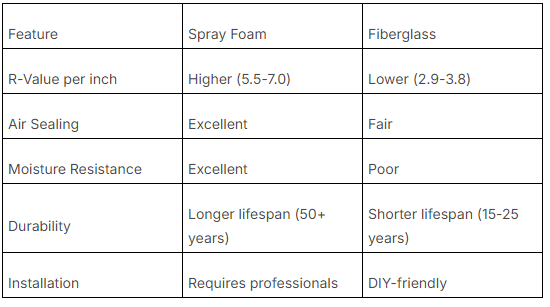
HVAC Considerations for Encapsulated Attics
When thinking about adding spray foam insulation to your home in Fort Worth, it's key to think about how it will affect your heating and cooling system and the air moving around in your house. If you decide to seal up and insulate your attic with this kind of foam, you need to pay extra attention to making sure there's enough fresh air coming in and out.
This type of insulation seals off the attic tightly, which can stop air from flowing freely like it normally does. This might make the temperature go up too much in that space. When that happens, your heating and cooling system has to work overtime trying to keep everything nice and comfy inside.
To deal with these sealed-up attics right, you should have a heating and cooling setup that works well with how tight everything is because of the spray foam. That means having ducts that are just the right size along with plenty of airflow so everywhere gets cooled down properly. Also think about putting in systems designed for pulling fresh air into your house while keeping old indoor stuffy air out; things like big fans for the whole house or gadgets that save energy by recycling heat could really help keep good quality indoor atmosphere.
Why HVAC Compatibility Matters
When picking an HVAC system, it's really important to make sure it works well with your spray foam insulation for a few big reasons. For starters, when your HVAC matches up right with the insulation in your attic that's been sealed off with spray foam, you're looking at saving some serious cash on energy bills because everything runs smoother and uses less power.
Then there’s comfort to think about. With spray foam keeping things tight and cozy by sealing up the attic, air moves around your house differently. You need an HVAC setup that gets this and can keep every room feeling just right without any weird hot or cold patches messing things up.
And don't forget about how long stuff lasts. Spray foam takes some of the pressure off your heating and cooling systems since they don’t have to work as hard to keep temperatures steady. This means not only could you be spending less money fixing or replacing them down the line but also enjoying a comfy home for longer without hassle.
Recommended HVAC Upgrades
Besides picking an HVAC system that works well with spray foam insulation, you might want to think about a few upgrades to make your Fort Worth house even more energy-efficient and better ventilated.
Starting with a programmable thermostat could be a smart move. It lets you set different temperatures for various times of the day, helping you use less energy and save money. A smart thermostat goes one step further by learning what temperatures you like and adjusting itself accordingly.
Then there's adding either an ERV (energy recovery ventilation) or HRV (heat recovery ventilation) system. By bringing in fresh air and capturing energy from the air going out, these systems lighten the load on your HVAC unit while making sure your indoor air is cleaner.
Making sure your ducts are properly sealed and insulated is crucial too. If ductwork leaks or isn't well-insulated, it can lead to wasted energy and make your system work harder than it needs to. Sealing up those leaks and wrapping the ducts right keeps airflow steady and maintains even temperature all over your place.
By considering these enhancements along with spray foam insulation for your home in Fort Worth, not only will you boost its energy efficiency but also improve how comfortable it feels inside.
The Impact on Roofing and Shingles
When you're thinking about adding spray foam insulation to your home in Fort Worth, it's really important to think about how it might affect your roof and the shingles on top. This type of insulation can change the way heat moves through your roof, which could end up affecting how well your roofing materials do their job and how long they last.
A big worry is that this kind of insulation could make your attic a lot hotter. Since spray foam creates a tight seal that stops heat from getting through, it can lead to higher temperatures up there. When the attic gets too hot, it can cause damage to the shingles above and make them wear out faster.
To help avoid problems with your roof and shingles because of this extra heat, making sure there's good airflow in the attic is key. Having enough ventilation lets hot air escape and keeps cooler air moving in so that things don't get too warm under those roofing materials. Also picking out roofing stuff that doesn't get as affected by radiant heat will mean they'll probably last longer if you've got an attic sealed off with spray foam insulation.
Risk of Voiding Shingle Warranties
When you're thinking about putting spray foam insulation in your attic, especially if you live in Fort Worth, it's crucial to know that this could mess with the warranties on your roof shingles. Roofing companies usually have a set of rules and tips for what kind of insulation and how to put it in so that their warranty stays good.
A lot of times, these warranties need your attic to be well-ventilated. This helps keep the roofing materials lasting longer. But here's the thing - spray foam can seal up spaces really tight, stopping air from moving around like it should. And when that happens, there goes your warranty.
Before jumping into adding spray foam insulation, talking to an expert roofer is a smart move. They'll tell you all about which insulating methods won't cause trouble with your shingle warranty. On top of that, they can make sure there’s enough airflow in the attic through proper ventilation techniques; this way heat doesn’t build up and harm those roofing materials.
Transposing Through Shingles: Causes and Prevention
In Fort Worth, when we talk about spray foam insulation for homes, there's a worry that the heat might move through the shingles. This happens because radiant heat from your attic goes through the shingles and makes your roof hotter. When this occurs, it can cause your shingles to wear out faster than they should.
To stop this from happening, you could put in a radiant barrier right under those shingles. A radiant barrier is just a shiny material that throws back the sun’s warmth instead of letting it cook your roof. By doing so, it keeps less heat from getting to your shingles which means cooler roofs and longer-lasting shingles.
On top of that, making sure you have good attic insulation and airflow helps fight against this problem too. The right amount of insulation stops much of the warmth from passing through your roof in the first place while having enough air movement gets rid of any warm air that does get into your attic space anyway. Using these methods together - adding both proper ventilation along with spray foam or other types insulations plus installing a reflective radiant barrier – really works well at keeping away unwanted rooftop heating and saving those precious singles.
Alternatives to Spray Foam Insulation
While spray foam insulation has its perks, it might not be the best fit for every house in Fort Worth. Luckily, other types of insulation can do a pretty good job too. Blown-in insulation and solar-powered attic vents are two popular choices.
With blown-in insulation, tiny bits of materials like fiberglass or cellulose are used to fill up spaces tightly, making sure heat stays where it's supposed to. This method is not only affordable but also simple to put into place and great at keeping your home warm.
On the other hand, if you're looking into cutting down on heat buildup in your attic without adding more foam or bulk, solar-powered attic vents could be what you need. These gadgets sit on your roof and use sunlight to pull hot air out from under it. They're good for the planet, easy on your wallet over time since they run off free energy from the sun and keep things cool upstairs without extra work.
So even if spray foam isn't right for everyone in Fort Worth seeking better insulation, these alternatives offer effective ways to insulate homes while improving ventilation using materials like fiberglass or innovative solutions such as solar-powered vents.
Blown-In Insulation: Pros and Cons
In Fort Worth homes, many people choose blown-in insulation over spray foam insulation because it has its own benefits and things to think about. Here's a look at the good and bad sides of using blown-in insulation:
Pros:
- It saves money: When you compare it to spray foam, blown-in insulation usually costs less, which is great for homeowners looking to save.
- Putting it in is simple: By blowing tiny bits of insulating material into place, installing blown-in insulation can be done quickly and efficiently.
- Keeps heat out well: Blown-in insulation does a fantastic job filling up cracks and covering uneven spots. This makes a continuous barrier that stops heat from passing through.
Cons:
- It might settle: As time goes by, there's a chance that this type of insulation could settle down lower than where it was originally put. To keep its ability to stop heat loss at its best, you might need regular check-ups or even add more later on.
- -With moisture comes problems: If not installed right or if used in places where leaks happen often,blown-insulation can hold onto water. This wetness can cause mold to grow or ruin the insulation, making big issues for homeowners.
Solar Powered Attic Vents: An Overview
In Fort Worth homes, using solar powered attic vents is a great alternative to spray foam insulation for keeping attics cool and well-ventilated. These vents are set up on your roof and work off the sun's power. They have either a fan or a system that gets rid of the hot air in your attic, letting cooler air come in instead. By doing this, they cut down on how much heat builds up upstairs which makes it easier for your heating, ventilation, and air conditioning (HVAC) system to keep your house cool. This not only helps with energy efficiency but also means you're using less electricity.
On top of all that, solar powered attic vents are good for the planet since they use renewable energy from the sun. They don't need much looking after once installed and run quietly without causing any disturbance. So if you're thinking about ways to improve insulation or make cooling more efficient at home without relying too heavily on things like spray foam or other types of foam insulation methods while still caring about environmental impact—solar-powered attic fans could be just what you need.
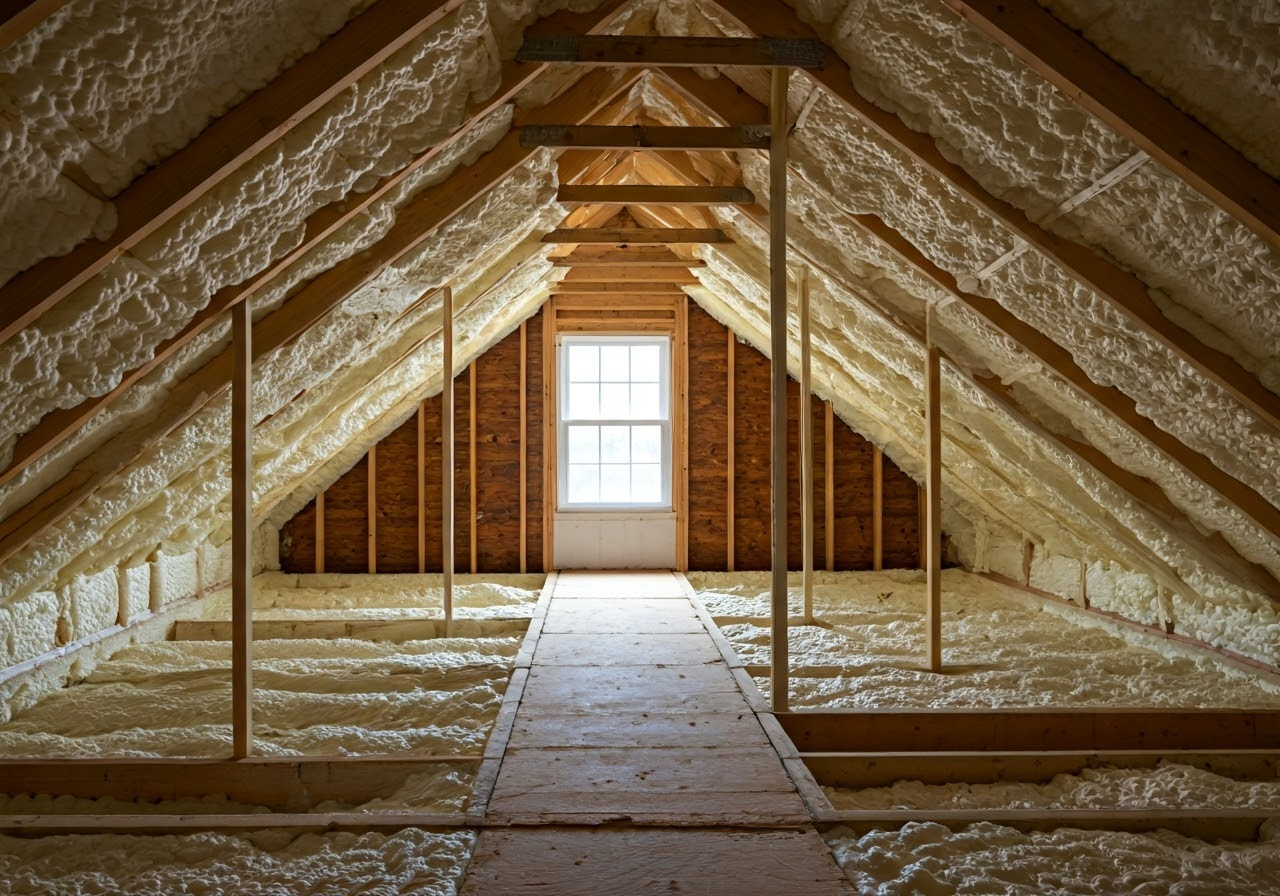
Making the Decision for Your Fort Worth Home
When picking the best way to insulate your Fort Worth house, it's a big choice that really matters for keeping energy use down, making sure you're comfortable, and improving your home. Here are some things to think about before choosing:
- With Fort Worth having hot summers and mild winters, think about how the weather affects what kind of insulation you need. You'll want something that keeps indoor temperatures steady all year.
- Figure out how much money you can spend on insulation and compare costs between different types. Think about which ones will save you more money in the long run because they make your home more energy-efficient.
- Look at how your house is built including stuff like attic space, any insulation already there, and the ventilation system. These details help decide which type of insulation works best.
- Think about what goals you have for saving energy and see how various kinds of insulation could meet those needs by offering high R-values for better thermal resistance.
By thinking over these points and talking with experts in insulating homes, finding the right option for your place in Fort Worth becomes easier.
Factors to Consider Before Insulation
When you're thinking about adding insulation to your Fort Worth house, there are a few things you should keep in mind to make sure it works the best it can. Here's what you need to think about:
- With attic stairs, they're important because they can let a lot of heat out or bring unwanted heat in. You might want to put an insulated cover over them or add some weatherstripping around them so less air gets through.
- For warm areas, look for places that seem hotter than the rest of your house like rooms with big windows or walls that face south. These spots might need more insulation so everyone feels more comfortable and temperatures stay even.
- On cool areas, pay attention to parts of your home like basements or any room that seems chilly due to not having enough insulation. Adding more here could help keep warmth from escaping and make those spaces cozier.
Taking care of these points helps ensure every part of your place is properly insulated which boosts energy efficiency and makes living there nicer by keeping temps just right.
How to Choose the Right Insulation Method
Picking the best way to keep your Fort Worth house warm or cool can seem tough. Here's what you should think about to make a smart choice:
- Energy efficiency: Search for ways to insulate that have high R-values and are really good at stopping heat from passing through. The better the R-value, the more it stops heat.
- Cost: Think about how much money you have and compare prices of different ways to insulate. Remember, some options might save you more money in the long run because they're better at keeping energy costs down.
- Installation requirements: Decide if you want to put it in yourself or get someone who knows what they're doing. For example, putting in spray foam insulation is usually something professionals should do so it works right.
- Compatibility with existing insulation: If your house already has some insulation, make sure whatever new type you add will work well with it and not cause problems.
Talking things over with experts on how houses stay warm or cool can help pick out just what fits your needs around saving energy, sticking within budget limits while getting everything set up properly for your home in Fort Worth.
Conclusion
To wrap things up, it's really important to get the full picture of what spray foam insulation can do for your home in Fort Worth before you decide. This type of insulation is great because it helps save energy and makes your house more comfortable. However, there are some things you need to think about first, like how much it'll cost at the start and if there might be issues with it expanding too much. The technical side matters a lot too - stuff like R-Value and different kinds of foam affect how well it works. On top of that, you've got to consider if this insulation will work okay with your HVAC system, what effect it could have on your roof, and whether other types of insulation might actually be better for you. By looking into all these points and checking out FAQs on spray foam insulation in Fort Worth homes specifically ,you can figure out if choosing this kind of foam is smart move or not.
Frequently Asked Questions
Is spray foam insulation right for every home?
Spray foam insulation might not fit every house perfectly. When thinking about it, you should look at your budget, what your home is like, and what you want to achieve with the insulation. By talking to experts in insulation, you can figure out which type of foam or other method will work best for keeping your Fort Worth home cozy and energy-efficient.
How long does spray foam insulation last?
Spray foam insulation stands out because of how long it lasts and its toughness. If put in the right way, it can stick around for as long as the building does, without ever needing to be swapped out. For folks living in Fort Worth, this means putting your money into spray foam insulation is a smart move since it pays off over time.
Can spray foam insulation be removed or replaced?
Spray foam insulation is meant to last forever, but if you really need to take it out or swap it for something else, you can. With that said, getting rid of spray foam isn't easy at all and usually takes a lot of time. You'll probably need someone who knows what they're doing with this kind of work - like a professional insulation contractor - to handle the job properly.
What are the signs of improper spray foam installation?
When spray foam insulation isn't put in right, a bunch of problems can pop up. You might notice things like gaps or cracks where you can see through the insulation, spots that got missed and don’t have enough coverage, or places where the foam didn’t stick well to what’s underneath. To avoid these issues, it's really important to pick a trustworthy contractor who knows how to do the job correctly.
How does weather in Fort Worth affect spray foam insulation performance?
In Fort Worth, the weather gets really hot in summer and pretty mild during winter. This kind of weather can affect how well spray foam insulation works. Things like changes in temperature, how moist or dry the air is, and sunlight hitting it directly might make a difference. But if the spray foam insulation is put in correctly, it should be able to handle these conditions without losing its ability to keep your place insulated.
Do I need to vacate my home during installation?
When you're getting spray foam insulation put in, it's usually a good idea to leave your house for a bit. The reason is that the chemicals involved can let off fumes which might bother your breathing. For advice on what exactly to do and when, talking with the person doing the installation is your best bet.
How can I ensure my HVAC system is compatible with spray foam insulation?
To make sure your spray foam insulation works well with your HVAC system, it's really important to think about having good airflow and ventilation. The person putting in the insulation needs to check out your current HVAC setup and might have to tweak or improve it a bit. This is all about making everything run smoothly and efficiently.
Are there environmentally friendly spray foam options?
Indeed, you can find spray foam insulation that's kind to the environment. These kinds use stuff from nature and don't hurt our planet as much. Instead of the usual spray foam, there are eco-friendly choices like foams made from soy or other natural materials. With these options, you still get great insulation but in a way that's better for Earth.
